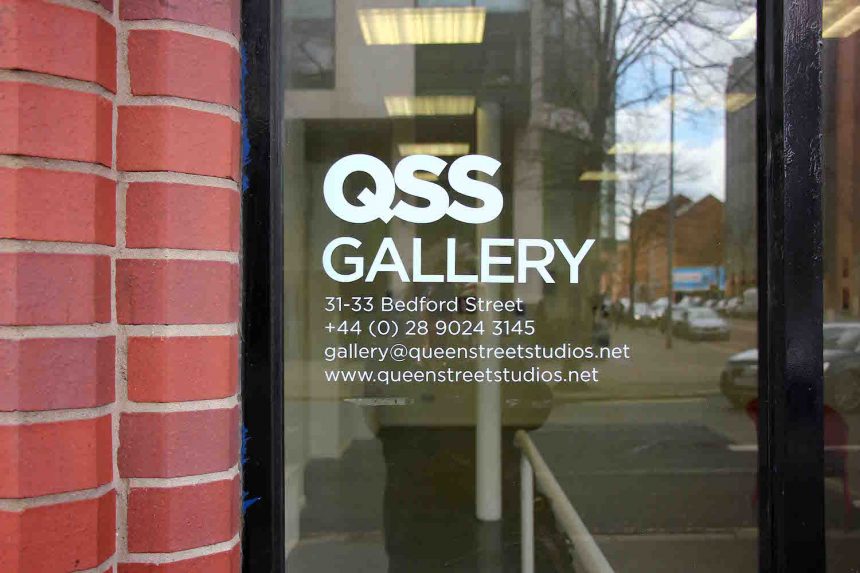Damien Magee addresses the impact of funding cuts on QSS & PS2 in A-N
For artists in Northern Ireland, the idea of a contemporary art market is something other, done elsewhere. Most do not have gallery representation – the art world here is not a commercial world; in fact, it is actively non-commercial. It exists independently from business and profit, instead holding ideas, meaning and dialogue as its most precious assets.
Not that money is a dirty word in these circles; it is the means to an end rather than the goal. The preponderance of artist-led spaces, adding up to more than 50% of the galleries in Belfast, ably demonstrates this.
The difficulty of an economically sustainable practice through self funding finds most artists seeking financial assistance, primarily through the Arts Council of Northern Ireland (ACNI). Funding does not determine quality of life, bar the celebratory cappuccino following a successful application, but facilitates the making and showing of artworks. It acts as an essential support around which discourses within the arts can flourish.
The return is immeasurable – a deeper and richer community in dialogue with a global network that extends beyond the plastic arts into wider cultural spheres: writing, theatre, music and so on. This network occupies a space of global possibilities; these are sites of potential futures. That the city derives its character from that culture makes the recent news of the Arts Council’s 100% funding cuts to two studio groups in Belfast difficult to fathom.
Paragon Studios and QSS (Queen Street Studios) are two well-established, voluntarily-run organisations that have been providing work spaces for visual artists for over 24 and 34 years respectively. Paragon consists of seven artists and a curator in residence while QSS is the largest studio provider in Northern Ireland housing up to 46 artists across two buildings – among them, recent graduates, established practitioners, PhDs and teaching staff at Belfast School of Art.
To add insult to injury, both studios have their own galleries, PS2 and QSS Gallery, which have been promoting contemporary practices within the heart of the city for many years. With an international remit, these galleries have diverse programmes, hosting numerous exhibitions, community projects, research and talks on a regular basis. With Paragon/PS2 forced to close immediately following the cuts, 21 programmed gallery projects have also been lost. The closure of the exhibition space is deeply felt among the wider arts community.
These events deliver a disturbing message from decision makers. With government and policy makers increasingly trying to measure the value of the arts based on outreach, education and community engagement, the abandoning of organisations that can be defined by those terms is counterintuitive. It shows little regard for those whose footfall they previously counted and who now find fewer places to go. It suggests a turning away from the community they are supposed to serve – something which is becoming a familiar refrain around here.
Amid widespread economic cuts, the situation in Northern Ireland is particularly fraught. An absence of devolved government leaves politicians unaccountable as the Department of Communities mete out unchallenged budgetary decisions. This makes assigning blame difficult, or perhaps systemic. However,the ACNI should be an ally in such circumstances, working on behalf of artists and organisations. But with an 8% cut passed on for 2018/19, they made a business decision to axe funding to seven of the 107 eligible arts organisations rather than make efforts to support them.
To put this in perspective, £13.1 million has been allotted in annual funding. Last year’s total funding for Paragon and QSS for both the studios and galleries was under £50,000. Such ruthless decisions based on relatively small sums betray the solidarity of the arts sector and follow revelations of internal conflict within the ACNI regarding chair John Edmund, who has repeatedly claimed that the arts sector relies too heavily on government support.
While ACNI board members seek to distance themselves from those views, they are symptomatic of a more troubling relationship government has with the arts. The last six years saw a 30% cut of £23 million to the arts sector in Northern Ireland, a gradual reduction of state funding that shows no signs of waning. This amounts to the erosion of culture itself – at this rate, a generation or two from now will see a severing of public funding of the arts, pushing the sector further towards the margins of society.
Or perhaps not. This need not be an obituary. At the time of writing, both Paragon and QSS are preparing appeals to challenge their defunding – allowing ACNI the opportunity to reassess their position and potentially change the future for the better.



